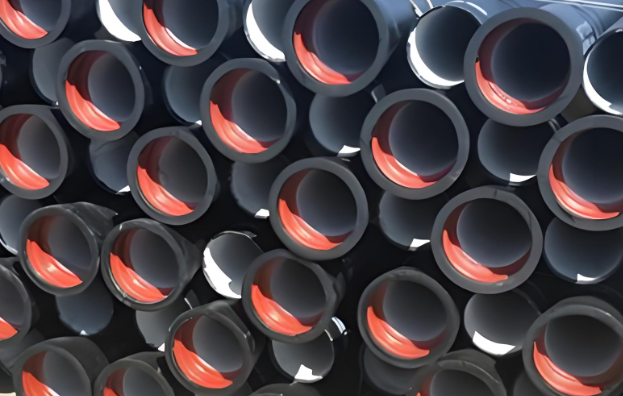Does Ductile Iron Rust? Yes, ductile iron can rust, but it does so at a slower rate compared to traditional cast iron. This is due to its unique microstructure, which includes spherical graphite nodules that enhance its strength and ductility. However, like all ferrous materials, ductile iron is susceptible to corrosion under certain conditions.

🔬 Corrosion Resistance of Ductile Iron
Ductile iron exhibits superior corrosion resistance compared to unalloyed steel and other ferrous materials. Its corrosion resistance can be further enhanced through various methods:
-
Polyethylene Encasement: Wrapping ductile iron pipes in polyethylene sheathing, known as polywrap, protects them from corrosive soil conditions. This method has been proven effective over decades of use.
-
Cement-Mortar Lining: Applying a cement-mortar lining inside the pipe adds an additional layer of protection against internal corrosion.
-
Zinc Coatings: Ductile iron poles and other products are often coated with zinc to prevent rusting. This coating provides a protective barrier against environmental elements.
⚙️ Factors Influencing Corrosion
Several factors can influence the rate of corrosion in ductile iron:
-
Environmental Conditions: Exposure to aggressive soils, high moisture, and acidic or alkaline environments can accelerate corrosion.
-
Protective Coatings: The presence or absence of protective coatings significantly impacts corrosion resistance.
-
Installation Practices: Proper installation techniques, including the use of corrosion-resistant materials and coatings, can mitigate corrosion risks.
🛡️ Preventing Corrosion in Ductile Iron
To prevent corrosion and extend the lifespan of ductile iron products:
-
Use Protective Coatings: Apply coatings such as zinc or cement-mortar linings to shield against corrosive elements.
-
Implement Corrosion Control Measures: Utilize methods like polyethylene encasement and cathodic protection to reduce corrosion risks.
-
Regular Maintenance: Conduct routine inspections and maintenance to identify and address potential corrosion issues promptly.
❓ Frequently Asked Questions (FAQs)
Q1: Can ductile iron be used in corrosive environments?
Yes, ductile iron is suitable for use in corrosive environments when appropriate protective measures are implemented. For instance, polyethylene encasement can protect ductile iron pipes from aggressive soil conditions.
Q2: How long does ductile iron last in corrosive soils?
The lifespan of ductile iron in corrosive soils can vary. Without protective measures, it may last between 21 and 40 years. With proper corrosion control methods, such as polyethylene encasement, its lifespan can be significantly extended.
Q3: Is ductile iron more corrosion-resistant than cast iron?
Yes, ductile iron generally offers better corrosion resistance than cast iron due to its improved mechanical properties and microstructure. However, both materials can benefit from protective coatings and corrosion control measures.
🧾 Conclusion
While ductile iron can rust, its corrosion resistance is superior to that of many other ferrous materials. By implementing appropriate protective measures, such as coatings and corrosion control techniques, the longevity and performance of ductile iron products can be significantly enhanced. Understanding these factors is crucial for selecting the right materials and maintenance practices for various applications.
